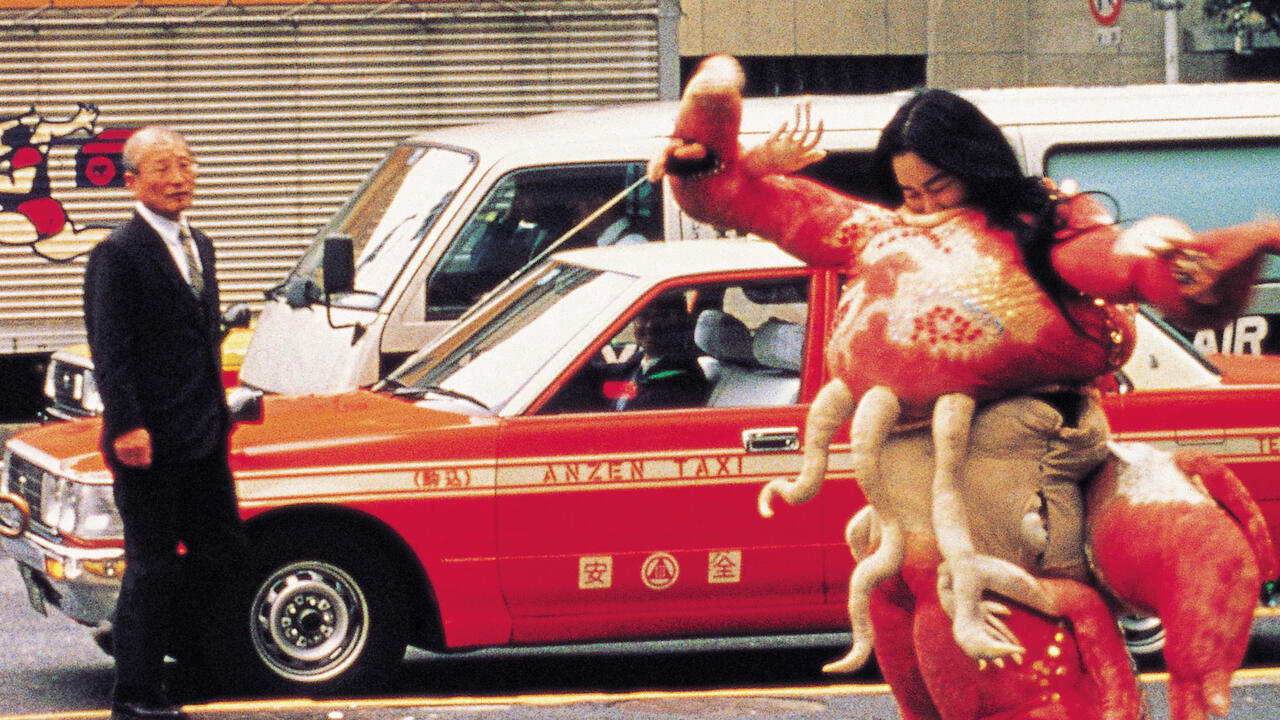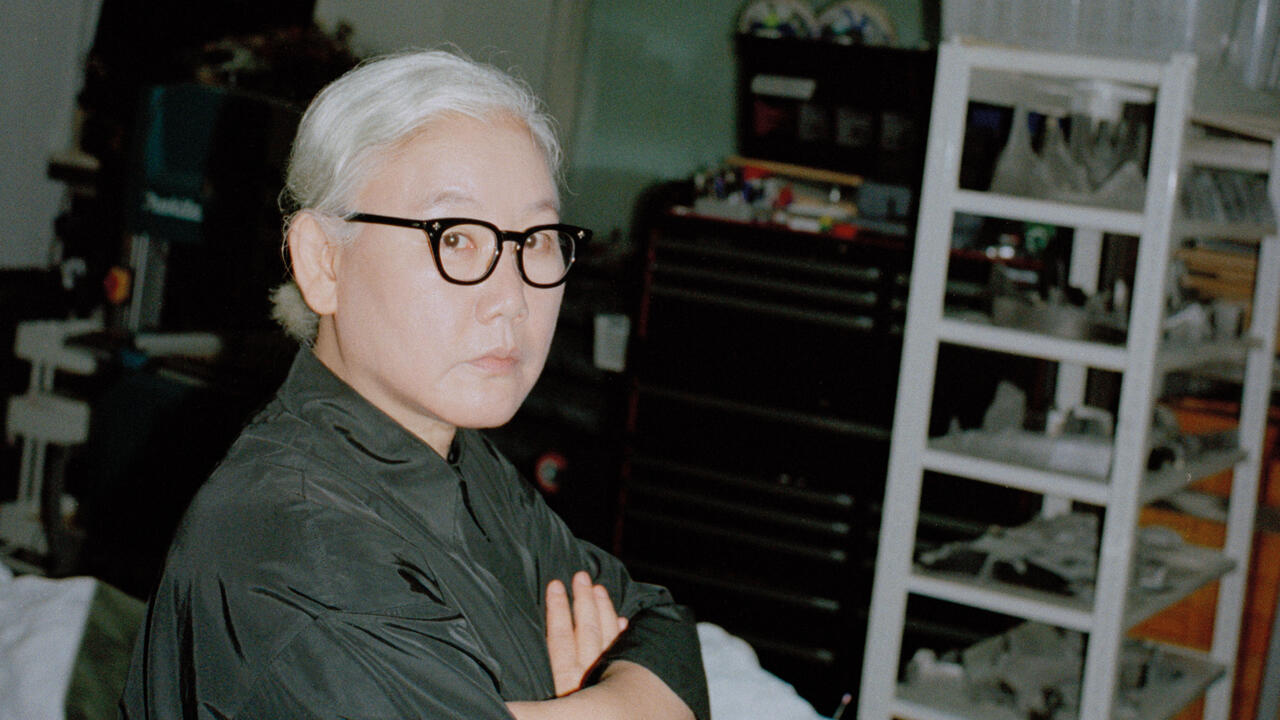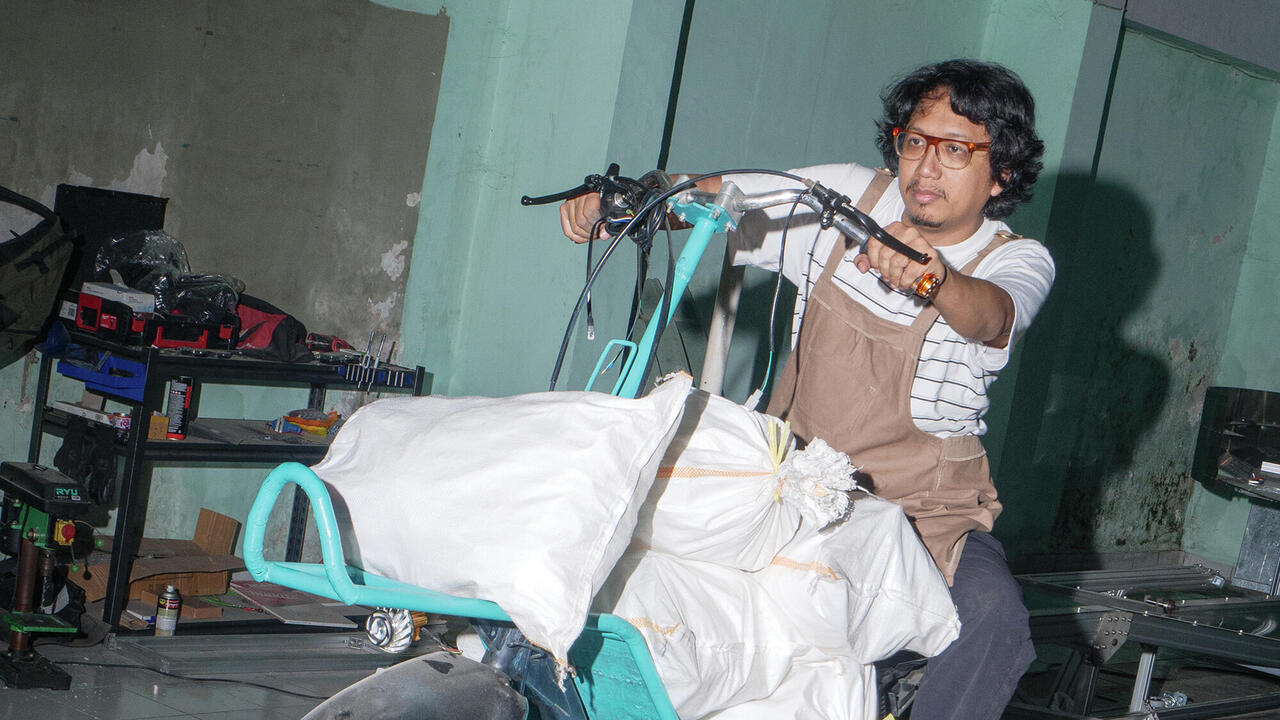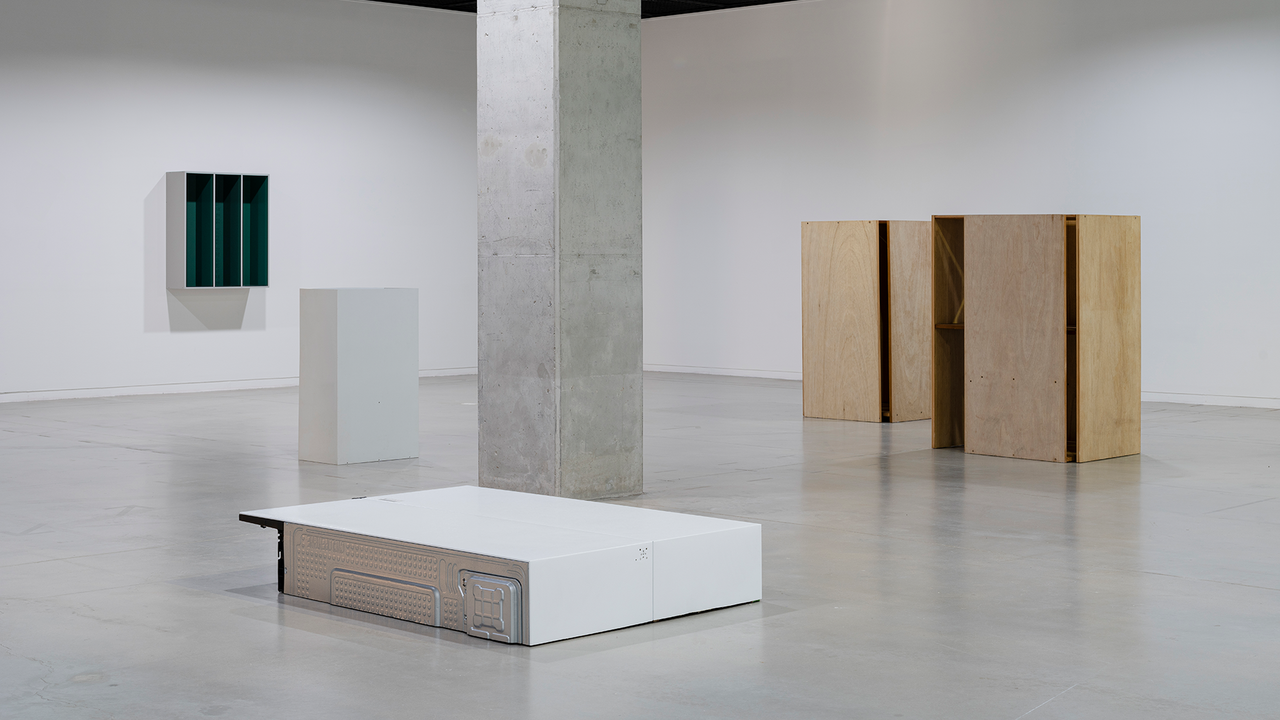Chronicle of a Death Forgotten
Philip Scheffner’s work stands for a new wave of German political documentary. His latest film Revision restores the history of two refugees who died under mysterious circimstances
Philip Scheffner’s work stands for a new wave of German political documentary. His latest film Revision restores the history of two refugees who died under mysterious circimstances

In 1992, the border between reunified Germany and Poland was also the outer limit of the European Union. Although the Iron Curtain had fallen, countries in the former Eastern bloc were cut off from the freedoms of Western Europe. Many people attempted to cross this border illegally, including Grigore Velcu and Eudache Calderar, two Romanian Roma who tried to enter Germany near the village Nadrensee in Mecklenburg-West Pomerania. On 29 June 1992, they were found dead in a cornfield, presumably the victims of a hunting accident. Those who fired the shots were later acquitted in a court case which the dead men’s families in Romania did not even know about. Twenty years later, the documentary filmmaker Philip Scheffner revisits this case. His film Revision (2012) is an outstanding example of the renewed tradition of political documentary in Germany. In addition to Scheffner and his partner Merle Kröger, one might mention Stefan Kolbe and Chris Wright (Kleinstheim, The Home, 2010) and Stefan Hayn and Anja-Christin Remmert (Weihnachten? Weihnachten!, Christmas? Christmas!, 2009). Scheffner and Kröger’s joint production company pong – based in Kreuzberg in Berlin – makes not only films but also books and sound pieces. Kröger’s Bollywood detective novels are rooted in the working friendships that pong has established in India. And Scheffner’s first film as director – The Halfmoon Files (2007) – deals with sound recordings made during World War I by Indian prisoners of war interned near Berlin.
The interest in mediation common to all of these works can be traced back to the political media collectives of the 1980s in West Berlin. Between 1991 and 1999, Scheffner and Kröger were active in the dogfilm group that worked on, among other projects, the dramaturgy of soap operas and eventually made a documentary Soap Around the World (1997). This work anticipated the post‑colonial and media-critical approach which also shaped The Halfmoon Files and which runs through all three of Scheffner’s full-length documentaries to date. In The Halfmoon Files, the century-old recordings trigger the filmmaker’s research into the fates of these prisoners who were transported halfway around the world during the first global war.

In Der Tag des Spatzen (Day of the Sparrow, 2010), Scheffner searches for traces of the current war in Afghanistan in the vicinity of an army barracks idyllically located in Germany (in the words of the politician Peter Struck, Germany is now ‘being defended at the Hindu Kush’). The entire film can be seen as a conceptual attempt to bridge this inconceivable distance by technical and investigative means. Scheffner moves from the impact of bird flight on the deployment of military aircraft to the specific case of the death of a German soldier, while spinning a web of associations between these two elements.
Revision also uses investigation to bridge a gap. Starting two decades after the deaths of the two Romanian men, Scheffner did the obvious thing: travelled to Romania to meet their relatives and hear their side of the story. Translation problems arose – linguistic, cultural, technical – and Scheffner integrated them into the film. Much of the footage consists of people listening to their own tape-recorded statements in front of the camera.
This double recording creates a second-order observation which focuses, not on the authentic eyewitness account, but rather on thinking through memory. The gesture of listening to oneself gives an added dimension to the film’s title. Revision is not just about reopening a case closed by the courts but also about using the means of film to create a new situation: people’s rushed verdicts and over-hasty judgements can be corrected when they are confronted with how these verdicts and judgements have been condensed by the media. This constellation does not always result in (self-) reflection. But in the montage of statements and in the visits made to various locations, a history is restored to the two men who had been stripped of their past at the time of their deaths, since the court effectively treated them as anonymous aliens.
In this work, the individual case of two deaths at a border between countries that are now both part of the European Union is situated within the larger political context of the years following the fall of the Berlin Wall. No parallels were drawn between the deaths of Grigore Velcu and Eudache Calderar and concurrent acts of xenophobic violence, such as the attacks on asylum seekers in Rostock-Lichtenhagen (also in 1992). But films like Revision make connections that German society wanted to avoid seeing at the time.
Translated by Nicholas Grindell















